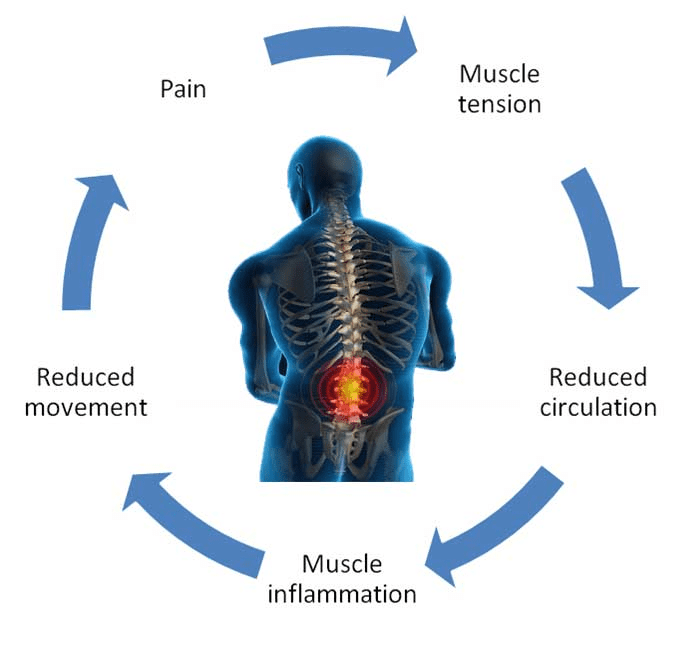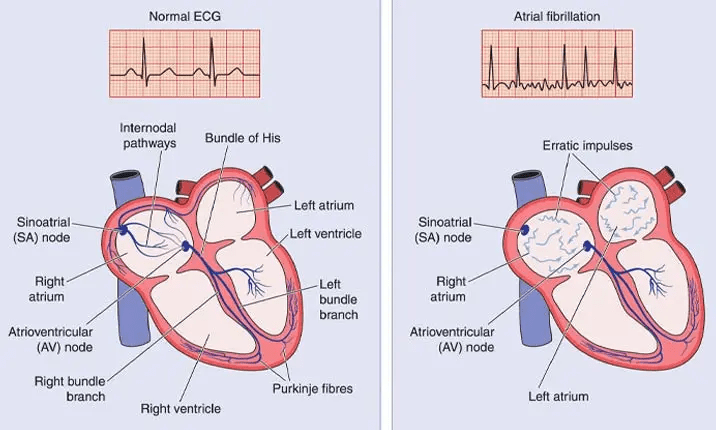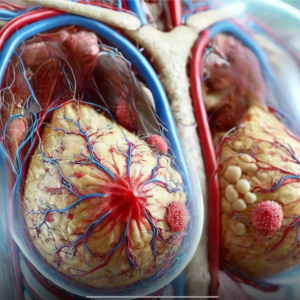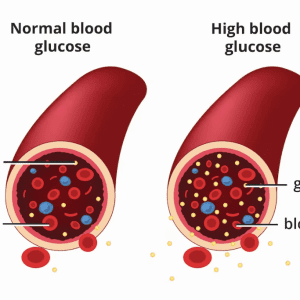Let’s face it—life’s stressful. Between work deadlines, family responsibilities, financial pressure, and a never-ending news cycle, it’s no wonder stress and anxiety are taking a toll on so many people. But what you might not realize is just how deeply stress affects your body and mind. It doesn’t just make you feel overwhelmed—it can mess with everything from your sleep to your heartbeat.
Muscle Tension: Your Body’s Default Stress Armor

Ever notice your shoulders creeping up toward your ears or that nagging tightness in your neck and back? That’s muscle tension—your body’s go-to reaction when stress kicks in.
Why does this happen? When you’re anxious or under pressure, your body enters “fight or flight” mode. Muscles tense up as a way to prepare for danger. But if stress is constant, your muscles stay clenched. Over time, this can lead to stiffness, discomfort, and even chronic pain.
Quick fix? Add daily stretching to your routine. Yoga, foam rolling, or even a few minutes of mindful deep breathing can help your muscles—and your mind—relax.
Video : 7 Signs Of Anxiety
Headaches: Stress Pounding at Your Temples
Tension headaches are the classic symptom of a stressed-out brain. That dull, persistent pain wrapping around your forehead? Yep, that’s often stress in disguise. It’s your body’s way of saying, “Hey, we need a break.”
Stress causes your neck and scalp muscles to tighten, which can trigger headaches. And if you’re prone to migraines, anxiety may make them worse or more frequent.
Your solution? Regular exercise, staying hydrated, and scheduling short breaks throughout the day can help ease pressure. Try rubbing peppermint oil on your temples or using a warm compress for natural relief.
Digestive Discomfort: Stress in Your Stomach
Let’s talk guts. Ever get a stomachache before a big meeting or feel nauseous when you’re anxious? That’s no coincidence. Your gut and brain are in constant communication—when one is upset, the other feels it.
Stress can slow down or speed up your digestive system. For some, that means bloating or constipation. For others, it’s cramping or diarrhea. If you’ve got a sensitive gut (think IBS or acid reflux), stress can really throw things off.
What helps? Eat light, nutrient-rich meals. Avoid caffeine and spicy food when you’re stressed. And practice mindful eating—slow down and chew, even when you’re in a rush.
Heart Palpitations: Anxiety Making Your Heart Race

That sudden pounding in your chest or fluttering heartbeat out of nowhere? It’s often linked to stress. While occasional palpitations are usually harmless, frequent episodes can signal that your nervous system is stuck in overdrive.
When you’re stressed, your adrenal glands pump out adrenaline. That hormone boosts your heart rate and prepares you to react—but if your stress doesn’t go away, neither does the rapid heartbeat.
How to stay calm? Cut back on caffeine and stimulants. Practice deep belly breathing to activate your parasympathetic nervous system—the part that helps you chill. Regular cardio exercise can also train your heart to stay steady.
Irregular Periods: Stress Messing with Hormones

Ladies, if your cycle’s been all over the place lately, stress might be the culprit. High stress throws off the balance of hormones like estrogen and progesterone, which are key to regulating ovulation and menstruation.
Some women might skip a period entirely. Others may experience heavier bleeding or severe cramps. If you’re trying to conceive, stress can even affect fertility.
What can you do? Prioritize self-care. Make sleep a non-negotiable. Eat foods that support hormonal health—think leafy greens, healthy fats, and whole grains. And talk to your doctor if irregular periods become the norm.
Sleep Struggles: Stress Keeping You Awake
There’s nothing worse than lying in bed with your mind racing. You’re exhausted, but your brain won’t stop spinning. Sound familiar?
Video : Your Body DYING! 15 Symptoms Of High Cortisol Levels (YOU IGNORE DAILY)
Stress activates your body’s alert system, keeping cortisol levels high when they should be winding down. The result? Tossing and turning, waking up frequently, or not feeling rested even after a full night in bed.
Try this routine: Shut off screens an hour before bed, dim the lights, and do something calming like reading or journaling. Consider meditating for 5 minutes before sleep or sipping herbal tea. Sleep is your body’s reset button—don’t skip it.
Weight Gain: When Stress Adds Inches to Your Waist
You’re not imagining it—stress really can lead to weight gain. It all starts with cortisol, the body’s primary stress hormone. When it spikes, your appetite increases and your metabolism slows. On top of that, many people turn to comfort food when they’re anxious or overwhelmed.
That stress belly? It’s a real thing. Cortisol loves to store fat around your midsection, which can increase the risk of heart disease and diabetes over time.
Beat the belly bloat: Focus on whole, unprocessed foods. Get your body moving—even a 20-minute walk can lower cortisol. And keep your emotional eating in check by finding healthier ways to cope, like journaling, calling a friend, or exercising.
Conclusion: Take Control Before Stress Takes Over
Stress and anxiety might be common, but they don’t have to control your life. Recognizing the symptoms is the first step in breaking free from their grip. From headaches to heart palpitations, your body has ways of telling you when something’s off—it’s up to you to listen.
Make small changes that add up: move your body, eat well, breathe deeply, and give your mind the space to relax. And if the pressure feels too heavy, don’t tough it out alone. Talk to someone. Seek help.
Life’s too short to let stress steal your peace—and your health.


